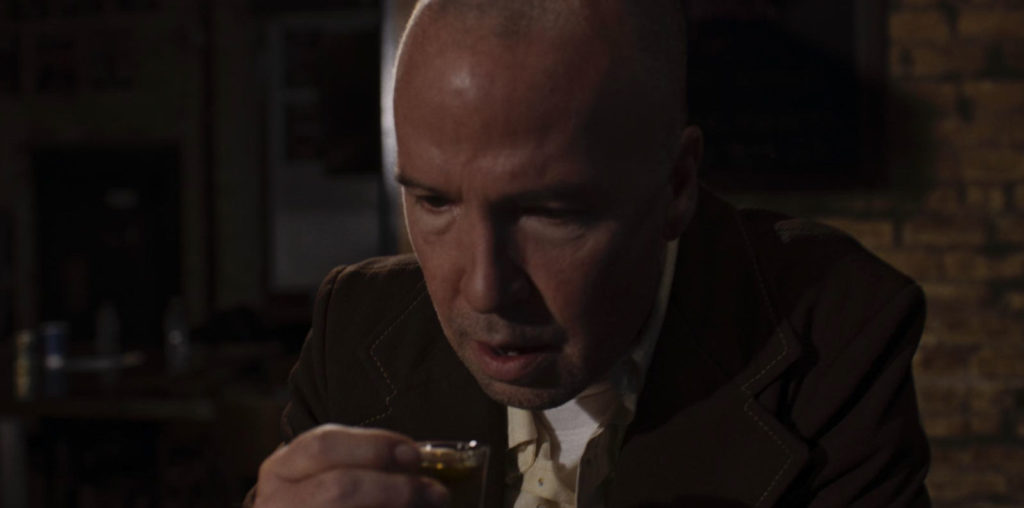
I’d become familiar enough with Chinese pop music after some time to finally buy a CD (or Music VCD, as they are commonly packaged) of a group that I liked. It was a girl group that may have been riding on the one-time popularity of the Spice Girls in the West, and when I asked someone for the English translation of the group’s name, she replied “Five Beautiful Girls”.
You can’t get more literal than that. You have five beautiful girls in a pop group, so what do you name the group? Five Beautiful Girls. I’d encountered this cut-and-dried approach to translation before, having being asked on occasion if I’d ever seen such movies as “Big Shark” or “Survival After Disaster on an Island”, which turned out to be “Jaws” and “Cast Away” respectively. It was a little soul-destroying to hear these movies so bloodlessly labelled. Was there no poetry in the Chinese language, or, if there was, had it all become lost in translation? Admittedly, the Chinese titles bestowed upon these films are not displayed in English text on the DVD or VCD covers, but in traditional Chinese characters. I did see at least one exception of a translation displayed in English – a DVD of “Finding Nemo” bearing an image of a large shark toothily grinning behind the two unaware fish before it and a title that appeared to be named after the cover and not the actual movie, which read “The Big Fish is Going to Eat the Little Fish”.
Of course this is not the official translated title of “Finding Nemo”. No, that would be “The General Mobilization of Animals at the Bottom of the Sea”. Try telling your six-year old you’re going to sit down and watch that on the next rainy day.
Some translated titles are straightforward enough, being the phonic equivalent of Western names – for example: “Jian Ai”, “Tai Tan Ni Ke” and “Xin De Le” (A pause while you read through these titles and try to figure out what they might be. Still pausing in case you haven’t looked back and are going to accidentally read the answers. Okay, final pause now and last chance to look back because here are the titles), which are the translations of “Jane Eyre”, “Titanic” and “Schindler’s List”. Other names get enhanced, so that “Mr Bean” becomes “Stupid Mr Bean” and “Tootsie” is “Mr Tootsie”. Some names don’t get translated at all. “Barry Lyndon” is known in China as “People in Times of Disorder” (not that anyone in China would know what that felt like), the compilation “Wallace and Gromit: 3 Cracking Adventures” is “Super Dog Who is in Charge” and the movie I was named after, “Shane”, becomes “Knight Errant on the Campaign”, which I think is kinda cool but would be harder to fit on a drivers license.
Sometimes you get the impression that whoever was responsible for giving a Western film its Chinese title had never seen the movie at all. “Deliverance”, understandably, is called “Four Brave Men Passing Though Rapids and Dangerous Shoals”, which fair rolls off the tongue, but “Blade Runner” becomes “Silver-Wing Killer” and “The Edge” reads more like a self-help title: “Be Extremely Antagonistic”.
Similarly to the phonetic translations of names, many titles do keep their meaning intact. “The Abyss” is “Bottomless Pit”; Spielberg’s “Always” is “Until Forever”; “The Rocky Horror Picture Show” is simplified into a two-word film review, “Horrible Show”. “Moulin Rouge”, which translates literally from French as “Red Windmill” in English, interestingly retains its meaning in the Chinese, “Red Mill”, while also reading as a metaphor referring to a place where dancing girls used to stay or live in. But then there are other titles that go off in their own directions – “Altered States” is “Deformed Ph.D”; “Full Metal Jacket” is “Golden Suit of Armor”, and, with no regard for the film’s surprise twist, “Soylent Green” gets called “Killing People Without Spilling Blood”.
“Eyes Wide Shut” goes the complete opposite and is translated, or more than likely ‘corrected’ from what was apparently a flawed title to begin with, to “Eyes Wide Open” (literal translation) or “A Real Eye-Opening Experience” (free translation). I guess it depends whether you got the uncensored version or not.
And so we come back to where we started, with titles so mundanely literal that you can probably figure them out on first glance. “The Romance of Human and Mermaid”. “The Comet and Earth Collided”. “Love Story Happened Through the Internet”. (Splash, Deep Impact, and You’ve Got Mail, if you really didn’t guess). Such blatant titling is naturally a great source of amusement to Westerners, but I’ve been dealing with English as a Second Language for too long now to find it as funny as it used to be (all right, items like “A*s-Kicking” ketchup, “Spontaneous Combustion” potato chips, and “Honey Coming” chocolate – complete with pictures of sexy girls on the packaging – that I do come across in Japan still crack me up). There have even been websites dedicated to displaying video captures of subtitles from movies like “Fellowship of the Ring” and “Revenge of the Sith” (or, if you prefer, “Backstroke of the West”). But the point that everyone appears to be missing is that these translations are not even English. They’re Chinglish – English which has been translated into Chinese and then back into English again. Of course something’s going to get lost in between, especially if you have to make one trip there and another back again.
You think that the expression “many thanks” is English? Think again: it’s the retranslation of “thanks a lot” – ‘a lot’ and ‘many’ becoming synonymously solipsistic (I’d like to hear Sylvester or Daffy try that phrase sometime). Similarly, “long time, no see” which I’m sure nearly all Westerners believe to be idiomatically English, is also a Chinglish rewording (bizarrely, Chinese students learn this as an English expression!). So you can chuckle when you see “Dante’s Peak” retitled rather laboriously (though conforming to a Chinese poetic sensibility) as “The Falling of Mountain and the Cracking of Earth”, but when it gets to the level that Terry Gilliam’s succinct “Brazil” is called “The Person Who Spends Too Much Time About Things That Will Never Happen”, then you know something is not simply lost in the translation; it’s gone missing, presumed dead, in translation.
(Thanks to my movie companion Deng Weiqing for all her help with this article)

